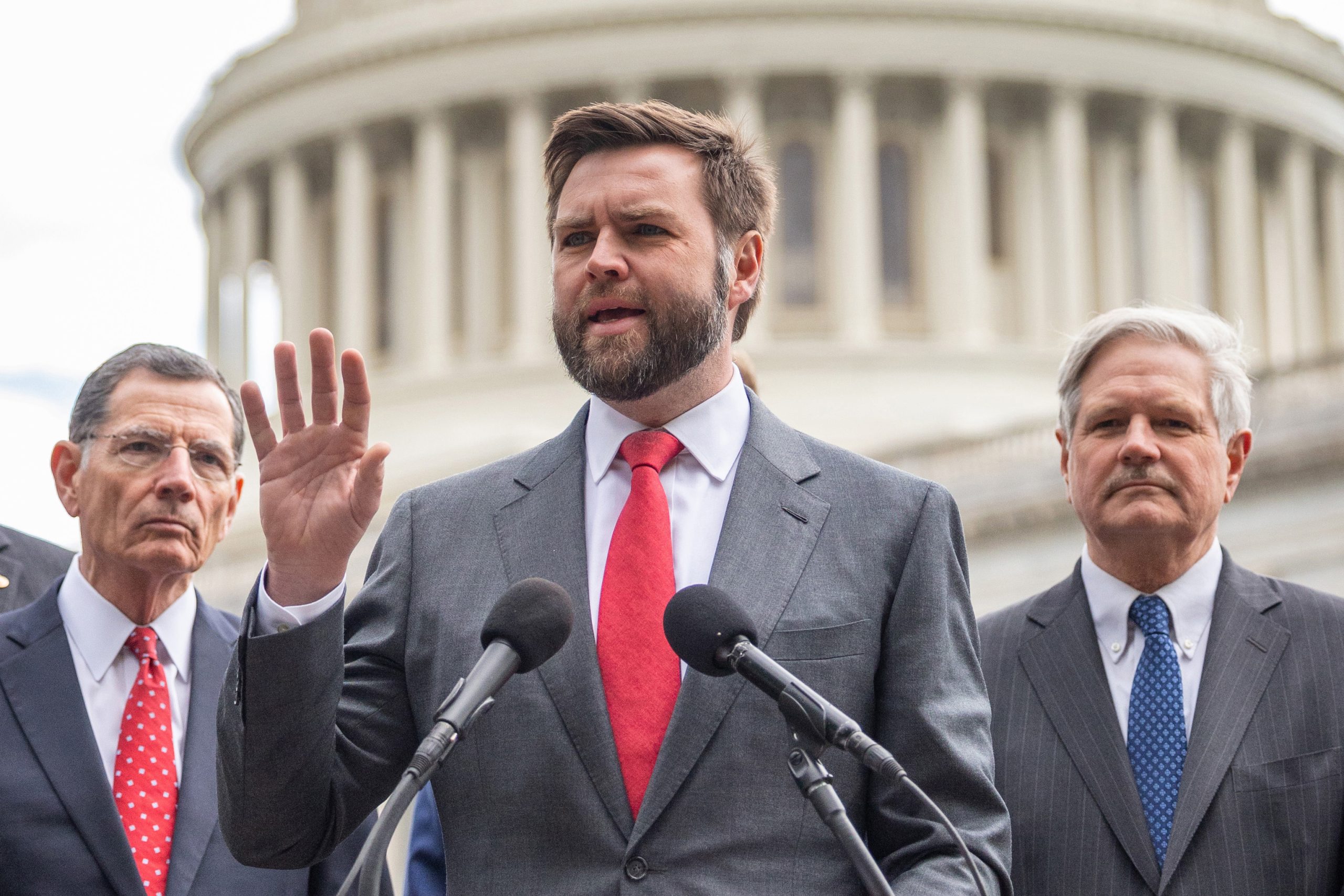“The interest of foreign bidders in U.S. Steel is not primarily about greenfielding investment into the United States of America. They’re not expanding steel production domestically, and they’re not necessarily doing it because they have better access to capital. They’re doing it primarily as a sort of tariff arbitrage.”
WASHINGTON, D.C. – During a hearing of the Senate Committee on Banking, Housing, and Urban Affairs, Senator JD Vance (R-OH) questioned Emily Kilcrease, former CFIUS Coordinator at the U.S. Department of Commerce and Deputy Assistant U.S. Trade Representative for Investment at the Office of the U.S. Trade Representative. Senator Vance and Ms. Kilcrease explored the current limits of the CFIUS review process for considering the integrity of trade protections and the public interest.
Watch Senator Vance’s remarks here and read excerpts below:
Senator Vance: “I want to direct my questioning to Ms. Kilcrease. In particular, I want to ask you about a live situation, the Nippon Steel acquisition of U.S. Steel. It’s something that I know a number of my colleagues from both sides of the aisle have expressed some concern about, and I’ve shared in those concerns. In fact, I wrote a letter months ago worried that the U.S. Steel Board would entertain foreign bids, even though I think it’s a bad idea for a host of reasons we can get into. But one of my concerns here is that the interest of foreign bidders in U.S. Steel is not primarily about greenfielding investment into the United States of America.
“They’re not expanding steel production domestically, and they’re not necessarily doing it because they have better access to capital. They’re doing it primarily as a sort of tariff arbitrage. They’re effectively buying access to the domestic markets in a tariff-free way. I think that in a world where, first of all, we’re talking about one of the most protected industries, steel, in the world, pretty much every country that has a steel industry has significant protections placed on it, and we’ve learned the hard way over the last couple of years that America’s capacity for manufacturing and some of the most critical weapons and other things is actually pretty lackluster given our needs. I worry about what this means for our country. I just want to this question: am I right, Ms. Kilcrease, that the only real tool or the only real organization that could review this transaction would be CFIUS?”
Ms. Kilcrease: “That’s right. CFIUS is the one that would review this foreign investment consistent with its national security mandate. There may be antitrust as well, but it’s basically CFIUS at this point.”
Sen. Vance: “And we’re expecting a CFIUS review on this particular transaction, correct?”
Ms. Kilcrease: “We are, and there’s public statements to that effect.”
Sen. Vance: “Got it. So here’s my question. CFIUS is primarily, or maybe exclusively, a national security standard that applies to review these transactions. Can CFIUS consider public interest concerns as part of its review?”
Ms. Kilcrease: “It cannot. CFIUS is a national security test. It’s a broad and flexible concept of national security, but if the concern, for example, is whether foreign investors are trying to get around tariff structures, it would be unusual for CFIUS to take action on that basis, and we probably don’t want to encourage the bureaucracy to kind of get outside the four corners of the legal mandate that’s been given by Congress.”
Sen. Vance: “Yeah, I agree with that. I guess part of my question is whether we think that the four corners legal mandate here is a little too narrow for what we’re concerned about, what we’re interested in. What do you think, if we wanted to empower our government to ensure that we had things like sufficient native domestic production of steel, what do you think we maybe should do here? If you were ‘legislator for a day’ and we wanted to further empower the Congress to protect, and I use that word intentionally, the domestic steel industry, what do you think we should be doing differently vis-à-vis transactions like this one?”
Ms. Kilcrease: “If there was a desire to have authorities on more of a public interest test for foreign investment reviews, certainly that would require additional legislation. That’s a gap. If the policy objective is to protect those sorts of domestic industries, apart from distinct national security concerns, we don’t have a tool to do that today. So you would certainly want to consider whether there’s a need for additional legal authorities as well as considering the impacts more broadly on downstream industries and broadly across the economy for that sort of proposal.”
Sen. Vance: “Great, I appreciate that. Maybe my office can follow up on some ideas on that front, because I do think it’s important. I know, just to pontificate on this point a little bit, there’s been some concern, some pushback on my view, that you shouldn’t be worried about Nippon Steel buying U.S. Steel because Japan is an ally and Nippon Steel appears to be a very good company. I don’t disagree with that. I think it’s important to point out that the Japanese are a great country, great people, and they are an important ally. They also are fundamentally in the sphere of influence of China. You can imagine a scenario where domestic steel needs would fall by the wayside when you have an international company that owns those rights and owns those production mandates.
“So just because they’re an ally doesn’t mean we shouldn’t be concerned about a foreign competitor buying up one of the most important industries, one of the most important companies, for a very, very critical not just national security, but full American interest company. So with that, I’ll yield and thanks to the chairman for giving me some time.”
For Background:
- In a December Letter to Secretary Janet Yellen, Senators Vance, Hawley, and Rubio urged CFIUS to block the sale of U.S. Steel to Nippon Steel. The Senators noted Nippon Steel is “a company whose allegiances are clear and whose record in the United States is flawed.”
- In an August letter to the CEO and Chairman of U.S. Steel, Senator Vance urged the company to reject any acquisition bid from a foreign entity, citing the vital role the domestic steel industry serves in defending the “security and prosperity” of the United States.
- In a September op-ed published in The Washington Post, Senator Vance raised concerns over the consequences a potential sale of U.S. Steel would create for the U.S. industrial base, and commented on the effect the Revlon doctrine has on corporations facing purchase offers.
###


